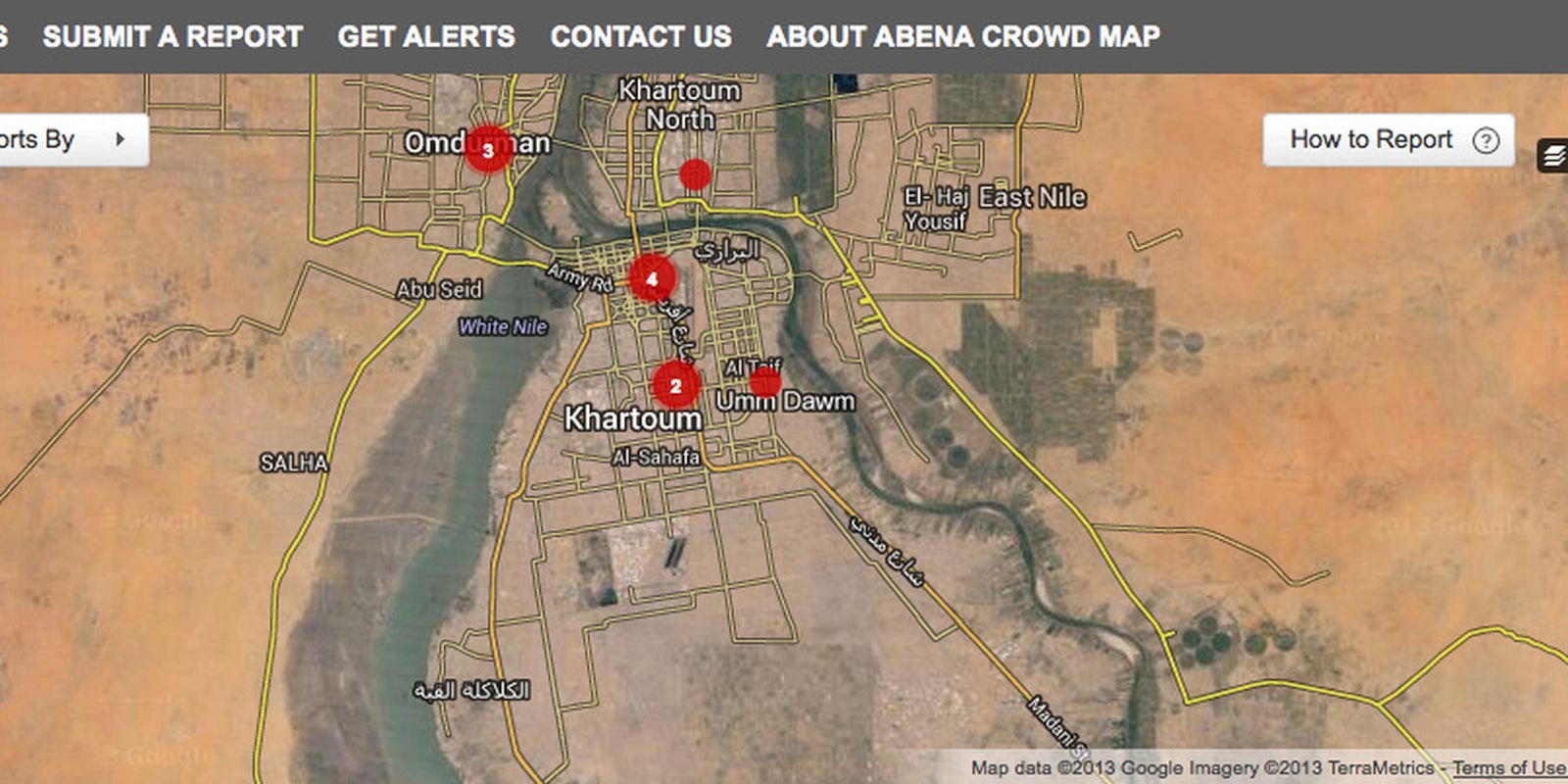BY AMANDA SPERBER
Since Wednesday afternoon, Sudan’s Internet has been sporadically shut off amid a fifth day of protests against President Omar al Bashir’s regime. Despite the attempt to cut off communications and limit organization and reporting on the ground, a group of tech-savvy people based in Khartoum have developed a map for recording key data about the protests that’s powered by cell networks.
Called the Abena crowd map, the map is the product of Mohammed Hashim Saleh and Abeer Khairy, engineers both, and Ahmed Hassan, the cofounder of Khartoum Geeks. In the short amount of time the Internet was on yesterday, they deployed the map, which follows events on the ground in Sudan with direct reports.
SMS messages are connected automatically with the Ushahidi-based crowdmapping platform, Saleh told me. Activists, some in-country (who work when possible) and the rest outside, login and check the messages. They are then double checked with news sources and social media before being finally confirmed and mapped. The crew has also been manually updating the platform.
“We have categories,” Saleh said, “Killed people, detainees, fire and deconstruction and demonstrations.” 11 reports have been uploaded since the site went live (three hours ago at the time of this writing).

The map’s report submission system, which is powered by cell networks rather than the Internet.
When I asked her about the number of deaths since the demonstration began, Khairy responded, “You want the number on the news? Or the number from the ground? Yesterday it was 111.” There is no updated number from today, as of 7:00 PM local time.
The grassroots protests began in Madani in east Sudan, have moved to Khartoum, the nation’s capital, and continued to spread. The lack of localization or steady internet connection, as well as press gags, has made confirming news and getting updates incredibly difficult.


